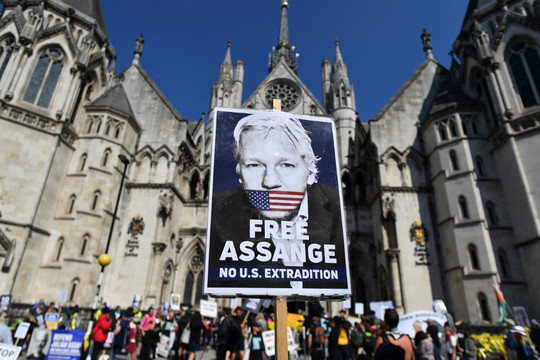Assange was initially granted leave by the lower court to challenge the decision for his extradition on the grounds that he was at risk of suicide if held in solitary confinement in a US maximum security facility. But US government lawyers appealed and the decision was overturned, prompting further challenges.
In January, two judges allowed the 50-year-old Australian IFJ Press Card holder to appeal to the country's highest court on "questions of law of general public importance". But a spokeswoman for the court said: "The Supreme Court has refused permission to appeal... as the application did not raise an arguable point of law."
The case will now return to US District Judge Vanessa Baraitser, the original judge who assessed the US extradition request, according to reports.
The legal proceedings now continuing in his case are:
- The case, at the direction of the High Court, will now be referred to Westminster Magistrates' Court, whose subsequent role is limited to referring the extradition decision to the Home Secretary, Priti Patel.
- The Home Secretary then decides whether to order or refuse extradition to the United States on a number of legal grounds.
- It will be recalled that Mr Assange was successful at Westminster Magistrates' Court on the issue subsequently appealed by the United States to the High Court. He has not yet made any appeal to the High Court in respect of the other important issues he raised earlier in the Westminster Magistrates' Court. That separate appeal process has not yet begun.
The IFJ regrets that the opportunity has not been taken to consider the worrying circumstances in which requesting states may offer interim safeguards following the conclusion of a full evidentiary hearing. In Mr Assange's case, the Court found that there was a real risk of prohibited treatment in the event of his extradition.
IFJ General Secretary Anthony Bellanger said: "Extraditing Assange to the United States would put his life in grave danger and we will fight tirelessly to prevent this. He must be released immediately and receive all the care that his medical situation requires."

